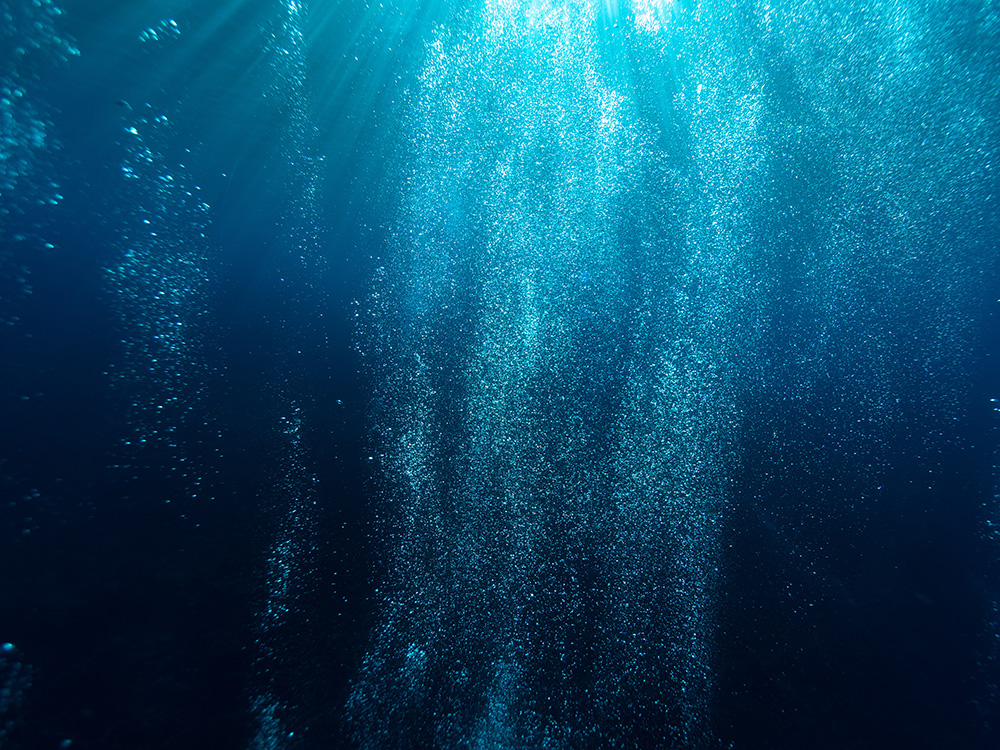Ocean Observing Awareness Campaign
Part 4: ICOS

The fourth segment of the EU4OceanObs ocean observing awareness campaign focuses on ocean carbon observation with focus on the Ocean Thematic Centre of the European research infrastructure ICOS – the Integrated Ocean Carbon System.
Why ocean carbon observations are important?
The ocean is a central part of the Earth’s climate system and acts as a natural carbon sink. Human activities such as fossil fuel burning and deforestation have profoundly altered the Earth’s global carbon cycle, and atmospheric concentrations of the greenhouse gas carbon dioxide are now higher than experienced on the planet for the past several million years.
The ocean generates 50% of the oxygen on our planet, absorbs 25% of all carbon dioxide emissions and captures 90% of the excess heat generated by these emissions. It is not just ‘the lungs of the planet’ but also its largest ‘carbon sink’ – a vital buffer against the impacts of climate change. – UN Climate Action.
Increasing greenhouse gas emissions have affected the health of the ocean, with detrimental impacts on marine ecosystems and the ocean’s ability to absorb carbon dioxide and safeguard all life on the planet.
Understanding underlying ocean carbon processes and how they are impacted by human-produced carbon dioxide emissions is vital. This requires accurately quantifying the human-produced ocean carbon sink. Despite significant scientific advances thanks to satellite observation, in situ observing networks, modelling techniques, the ocean remains chronically under sampled, leaving vast gaps in our knowledge of its behaviour. This lack of data presents a fundamental barrier to understanding, predicting, managing, and adapting to ongoing changes in ocean physics, chemistry, and biology, including ocean carbon content.
“As we attempt to move towards ‘net zero carbon emissions’, we must be able to determine if our actions to reduce carbon dioxide emissions are having any impact globally. To do this, we have to tease out how much change is attributable to our actions versus how much is being taken up by the ocean,” says Dr Maria Hood, head of the EU4OceanObs action on the G7 Future of the Seas and Oceans Initiative at Mercator Ocean International. “At present, the uncertainty in the ocean carbon sink is so large and variable that it will be difficult to know if any of our actions are actually having an impact.”
The European Union (EU) strongly supports ocean carbon observation and research through several programmes and initiatives. The EU’s Copernicus Earth Observation programme provides valuable satellite data on global ocean surface carbon. Key European research infrastructures and networks include the Integrated Carbon Observation System (ICOS) Ocean Thematic Centre – a European-wide research infrastructure focused on coordinating ocean carbon measurements as part of an integrated strategy (atmosphere, ocean, and land) and Euro-Argo, the European contribution to the international Argo float programme, which counts today over 570 floats equipped with biogeochemical sensors. Through the EU’s Research and Innovation Framework programmes, the EU funds over 350 research projects on the ocean and climate nexus, of which several are making major contributions to ocean carbon research. Such projects include the Ocean-ICU project, a large multidisciplinary project addressing limitations in our ability to measure and model the ocean carbon sink, and the JPI Oceans Knowledge Hub Ocean Carbon Capacities, which addresses and reduces uncertainties in the understanding of the ocean’s buffering and carbon storage capacities, and many others.
Spotlight on the Integrated Car bon Observation System’s Ocean Thematic Centre
bon Observation System’s Ocean Thematic Centre
The European research infrastructure the Integrated Carbon Observation System – ICOS was established in 2015 to produce standardised, high-precision and long-term carbon observations. ICOS facilitates research to understand the carbon cycle and provide essential information on greenhouse gases in the atmosphere as well as carbon fluxes between the atmosphere, the land surface and the Ocean.
The ICOS Ocean Thematic Centre coordinates a network of 29 ocean observation stations in eight countries (as of 2023), monitoring carbon uptake and fluxes in the North Atlantic and the Nordic, Baltic and Mediterranean Seas. Each observation station, such as moorings, buoys, research and commercial vessels, have been equipped with state-of-the-art carbonate system sensors. The ambition is to provide near real-time ocean data, which will be used to assess the ocean’s role in the carbon cycle and uptake of anthropogenic greenhouse gases.
Videos
UNESCO Integrated Ocean Carbon Research (ICO-R) Workshop May 2023: Opening address by John Bell, the European Commission’s ‘Healthy Planet” Director
Integrated Ocean Carbon System: Raising awareness of measurements of carbon parameters and greenhouse gas in the Ocean
ICOS Belgium showcasing measurements ocean of carbon parameters (dissolved inorganic carbon, partial pressure of carbon dioxide) and greenhouse gases on board research vessel Simon Stevin and by VLIZ data buoy in Thorntonbank wind mill farm in Belgium.
Useful links
- ICOS Ocean Thematic Centre: https://www.icos-otc.org/
- OceanICU: New Horizon Europe research and innovation project for improved understanding of the ocean carbon cycle to inform climate action: https://www.eu4oceanobs.eu/oceanicu_project_ocean_carbon/
- UNESCO Integrated Ocean Carbon Research Workshop May 2023: https://www.eu4oceanobs.eu/unesco-integrated-ocean-carbon-research/
- Integrated ocean carbon research (IOC-R) – A Global ocean carbon observation system: a background report: https://unesdoc.unesco.org/ark:/48223/pf0000127070
- Biogeochemical Argo floats: A Global Ocean Biogeochemical Observatory Becomes a Reality: https://eos.org/features/a-global-ocean-biogeochemical-observatory-becomes-a-reality



